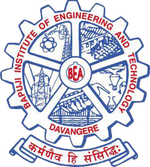
Dr. S. M. Chandrasekhara
Asst. Prof. in Textiles
YRCW Programme Officer
About Red Cross Society & Origin
The Indian Red Cross is a voluntary humanitarian organization having a network of over 700 branches throughout the country, providing relief in times of disasters/emergencies and promotes health & care of the vulnerable people and communities. It is a leading member of the largest independent humanitarian organization in the world, the International Red Cross & Red Crescent Movement. The Mission of the Indian Red Cross is to inspire, encourage and initiate at all times all forms of humanitarian activities so that human suffering can be minimized and even prevented and thus contribute to creating more congenial climate for peace.
Indian Red Cross Society (IRCS) was established in 1920 under the Indian Red Cross Society Act. The IRCS has 35 State / Union Territories Branches with their more than 700 districts and sub district branches. His Excellency The President of India is the President and Hon'ble Union Health Minister is the Chairman of the Society.
Red Cross Emblem
Red Cross on a white background, is the Emblem of Red Cross, recognized in 1864 as the distinctive sign for medical relief teams on the battle field.
Seven Fundamental Principles of Red Cross
- Humanity : The International Red Cross and Red Crescent Movement, born of a desire to bring assistance without discrimination to the wounded on the battlefield, endeavors, in its international and national capacity, to prevent and alleviate human suffering wherever it may be found. Its purpose is to protect life and health and to ensure respect for the human being. It promotes mutual understanding, friendship, cooperation and lasting peace amongst all peoples.
- Impartiality : It makes no discrimination as to nationally, race, religious beliefs, class or political opinions. It endeavors to relieve the suffering of individuals, being solely by their needs, and to give priority to the most urgent cases of distress.
- Neutrality : In orders to enjoy the confidence of all, the Movement may not take sides in hostilities or engage in controversies of a political, racial, religious or ideological nature.
- Independence : The Movement is independent. The National Societies, while auxiliaries in the humanitarian services of their governments and subject to the laws of their respective countries, must always maintain their autonomy so that they may be able at all times to act in accordance with the principles of the Movement.
- Voluntary service : It is voluntary relief movement not prompted in any manner by desire for gain.
- Unity : There can be only one Red Cross Or Red Crescent in any one country. It must be open to all. It must carry on its humanitarian work throughout its territory.
- Universality : The International Red Cross and Red Crescent Movement, in which all societies have equal status and share equal responsibilities and duties in helping each other, is worldwide.
Youth Red Cross Wing, BIET, Davangere
Youth Red Cross Wing has been started the academic year 2006-07. The Youth Red Cross Wing is a part of Indian Red Cross Society of District Branch. Students in colleges aged between 18 to 30 years are called member of Youth Red Cross.
Objectives of Youth Red Cross
- Taking care of their health and that of others.
- Understanding and accepting civil responsibilities.
- Maintaining the spirit of friendliness and helpfulness towards other children in India and all over the world.
- To inculcate in youth a service motto towards serving the less privileged brethren.
- Dissemination of the Red Cross Movement.






